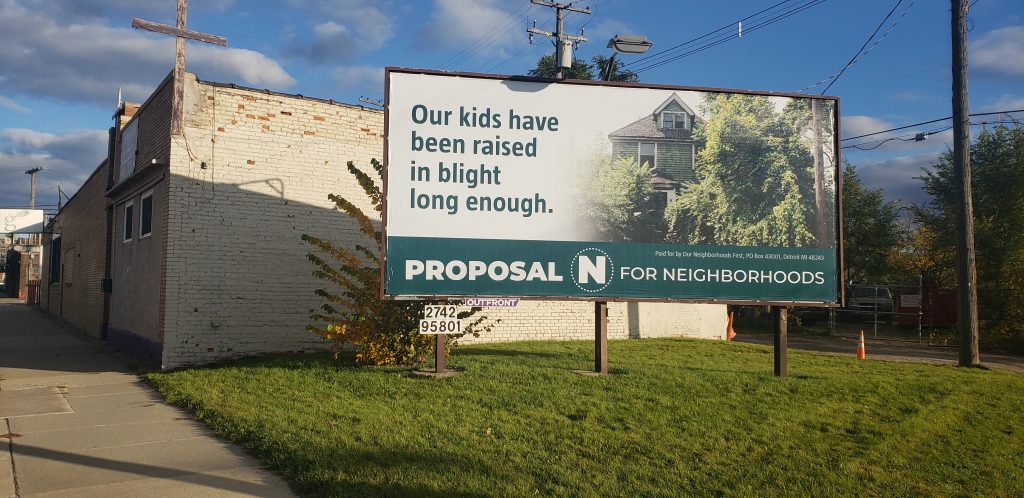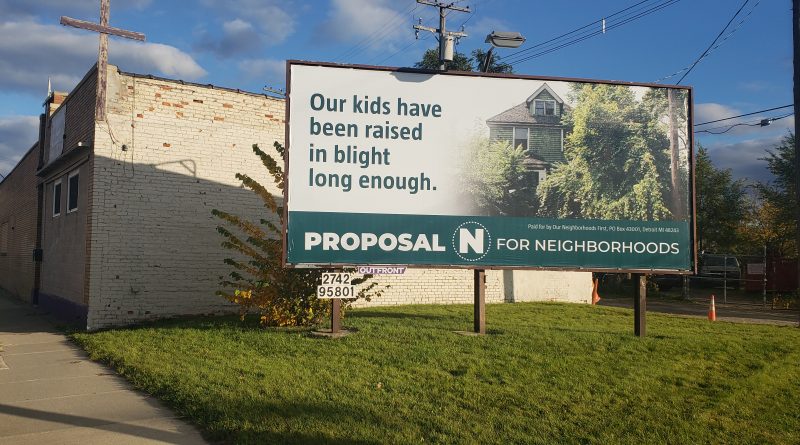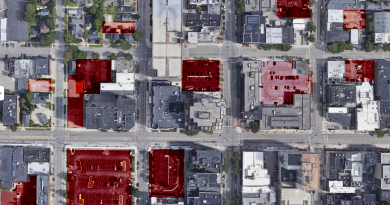Detroit: Vote No On Proposition N
Up on the ballot next week is Proposition N, which would empower Detroit Mayor Mike Duggan to spend a quarter billion dollars on “community development.” Unfortunately, there’s very little transparency about how that money would be used. Duggan has made it fairly clear that he wants his legacy to be that he funneled a hitherto unimaginable amount of public money to facilitate the development of shiny buildings– and the demolition of derelict ones. Combining lavish TIF spending with federal and local funds The city deployed hundreds of millions of dollars of HUD Hardest Hit Funds in a controversial and scandal-plagued demolition program. The city is still probably losing population, although downtown– with its private surveillance apparatus and ubiquitous surface parking- is, well, thriving! Here are three points on why you should vote ‘no’ on Proposition N.
No– to monied interests that don’t serve Detroiters
Detroit contractors got the short end of the stick in the original demolition program. Because there were very few companies in the city limits capable of handling volume, the work mostly went to suburban companies. This is bad for Detroit and simply perpetuates a cycle of extraction of wealth from the black inner city. Dan Gilbert, Detroit’s largest real estate player– and largest recipient of public funding- is a major contributor to the Prop N campaign. While that might to some be reason enough to vote no, it’s telling that big money interests are wrapped up in the push for more demolition. Gilbert is vying for land control and has a veritable monopoly on Downtown Detroit. He also vocally pushed a thoroughly flawed study that suggested that demolition improves proximal land value and is therefore a great use of taxpayer money. Not shockingly, that study also failed to take into account how much better that money could have been spent to create new value and productive assets in the local economy.
No– to continuing a failed demolition program
Never mind that the HUD funds were intended to be used for neighborhood stabilization which wasn’t supposed to be limited to demolition. It’s dubious that demolition does much to shore up real estate market valuations, and it certainly doesn’t add new housing units in a city with a shocking shortage of livable, affordable units. The demolition program has also struggled with corruption. Contractors have, at times, used contaminated soil to backfill foundations. Most of the records of where the fill came from have apparently vanished.
No– to superfluous property tax increases
The city’s position is that Proposition N isn’t a property tax increase because it’s borrowing against the city’s debt facilities rather than financing itself from property tax increases per se. But that money has to get paid back somehow. There’s also the fact that Detroit overtaxed its residents by $600 million– more than twice what the Prop N raise shoots for. In a city where tens of thousands of people have been evicted from tax foreclosure when it turns out that they were being grossly overtaxed, it doesn’t make sense to take such a huge gamble on the city’s future debt capacity. Especially as we plunge headlong into a recession and the second wave of COVID. I said it before and I’ll say it again: A mayor should create value, not refinance a lack of value. This money could be put to use stabilizing houses, renovating houses into finished housing units, or financing new construction. Transparency would be key to that. But it’s not something we have come to expect from this administration.




